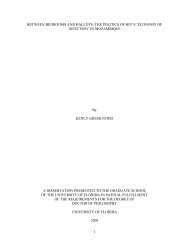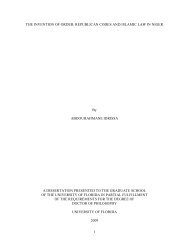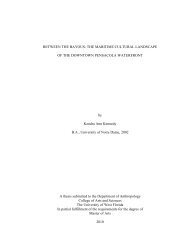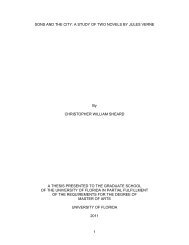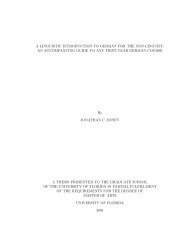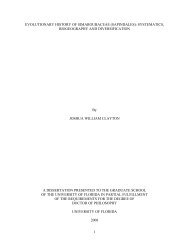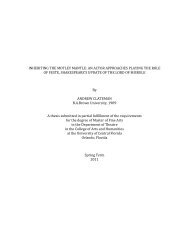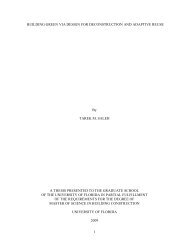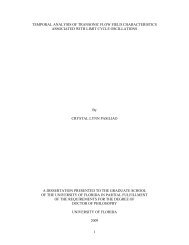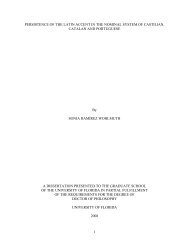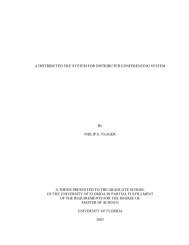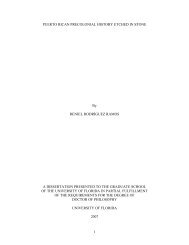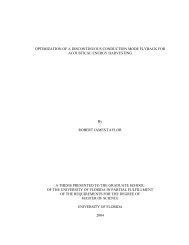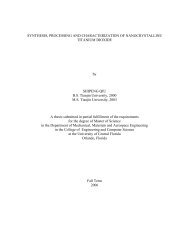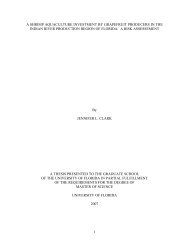Tracing the Source of the Elephant And Hippopotamus Ivory from ...
Tracing the Source of the Elephant And Hippopotamus Ivory from ...
Tracing the Source of the Elephant And Hippopotamus Ivory from ...
Create successful ePaper yourself
Turn your PDF publications into a flip-book with our unique Google optimized e-Paper software.
scientific archaeometric angle and <strong>from</strong> <strong>the</strong> recognition <strong>of</strong> <strong>the</strong> symbolic nature <strong>of</strong> material<br />
culture, in particular <strong>the</strong> symbolic significance <strong>of</strong> ivory. Luxury items fashioned <strong>from</strong><br />
ivory, or even simply <strong>the</strong> raw material, held a value beyond <strong>the</strong>ir relative scarcity, which<br />
was to express <strong>the</strong> importance <strong>of</strong> being related to a certain person (or group, polity, or<br />
idea) (Sherratt and Sherratt 1991: 354-356). In gift-exchange between <strong>the</strong> ruling elite <strong>the</strong><br />
relationship was embedded within international diplomacy and could express political<br />
affiliation, royal approval, obligation, favor seeking, or even simply <strong>the</strong> desire to locate<br />
o<strong>the</strong>r humans similar to oneself. The Hittite and Egyptian royal families exchanged<br />
letters on a regular basis, royal children writing to o<strong>the</strong>r royal children, wives to o<strong>the</strong>r<br />
wives. There was a practicality to international relations in <strong>the</strong> LBA, as <strong>the</strong> great powers<br />
<strong>of</strong> <strong>the</strong> Egyptians, Mitanni, and Hittites shared common borders and were forced into a<br />
“conditioned coexistence” (a term coined by Liverani 1987: 68). Expansion was not<br />
possible by land, and <strong>the</strong> minor kingdoms within Syria, Palestine, and Nubia acted as<br />
merchants to <strong>the</strong> great powers. Cyprus led <strong>the</strong> way with commercial exchange,<br />
answering to none for its political legitimation and controlling most <strong>of</strong> <strong>the</strong> copper<br />
resources. The international relationships could be viewed cynically as masking purely<br />
commercial intentions, but this is probably not <strong>the</strong> case.<br />
From <strong>the</strong> letters exchanged between <strong>the</strong> ruling elite and o<strong>the</strong>r historical sources,<br />
<strong>the</strong> fundamental ideas “expressed with obsessive insistence” (Liverani 1987: 67) were<br />
reciprocity and bro<strong>the</strong>rhood. O<strong>the</strong>r ideas included “generosity and disinterest (even in<br />
<strong>the</strong> specific form <strong>of</strong> an augmented restitution), <strong>the</strong> contrast between self-sufficiency and<br />
exchange, <strong>the</strong> personalization <strong>of</strong> <strong>the</strong> gifts… The ideological complex was quite coherent”<br />
(Liverani 1987: 67; Sherratt and Sherratt 1991: 371). Gift-exchange could also be<br />
182



